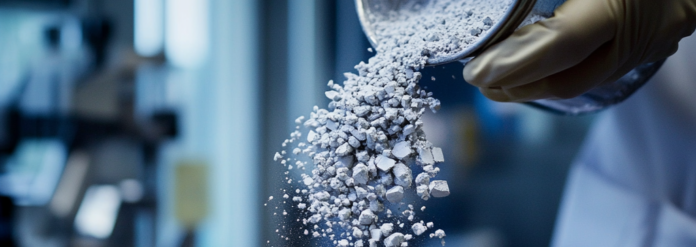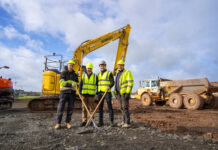In my recent search for companies that are looking to play a role in sustainable manufacturing, I stumbled upon Atomik AM, a UK-based company founded in 2023 with the goal of providing advanced manufacturing consultancy, and training in focused manufacturing approaches, enabling businesses to reduce cost, waste, and adverse social impact.
The company turned stealth mode off in 2022 and recently drew my attention as it signed a partnership with Cygnus Atratus Limited, a developer of ‘biophilic’ fuel cell and hydrogen production technology. Together, they will investigate opportunities for energy production using the waste from Atomik AM’s aluminum process.
Through its process, Cygnus Atratus has simplified systems and selecting optimal materials. To do so, Nicholas Abson, Founder of Cygnus Atratus, created a fuel cell that can be manufactured anywhere in the world with a 3D printer and the right materials.
On the other hand, instead of commonly used aluminum alloys, Atomik AM uses pure aluminum powders, sourced in the UK, for its 3D printing process, opening up superior thermal management possibilities for energy applications.
Atomik’s unique process delivers precise results for bespoke printed parts with minimal shrinkage and distortion, even for larger parts. While the binder jet industry aims to recycle most of its unused powder, not all of it can be reused and some conventional binder jet processes reuse as little as 4% of the powder. Atomik therefore wanted to find a use for this waste and what better solution than a fuel to make energy?
“For this project, I will be analyzing the waste that is produced from Atomik AM’s printers and attempting to quantify how much energy can be produced, along with some projections,” Engineer and PhD student, Luke Evans explained.
Low Carbon Eco-Innovatory funds the project, a £12 million partnership between the University of Liverpool, LJMU and Lancaster University.
If this stage of the project is successful, it is hoped that additional funding can be unlocked for a further stage to design, build and test a conversion machine, based on Evans’ findings. Nicholas Abson would build the prototype machine in conjunction with Atomik, to work towards creating a minimum viable product.
Remember, you can post free-of-charge job opportunities in the AM Industry on 3D ADEPT Media or look for a job via our job board. Make sure to follow us on our social networks and subscribe to our weekly newsletter: Facebook, Twitter, LinkedIn & Instagram! If you want to be featured in the next issue of our digital magazine or if you hear a story that needs to be heard, make sure to send it to contact@3dadept.com.






